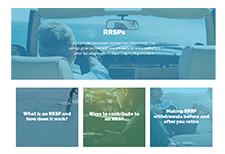Discover financial empowerment resources
Discover financial empowerment resources
A culturally grounded resource to support Indigenous financial wellness. Braiding Mind, Body, and Spirit is a financial wellness bundle created by and for Indigenous individuals and communities. Developed with Indigenous teachings, community voices, and practical tools to support individuals,...
2025 figures from the Canadian Income Survey showed poverty on the rise again, erasing progress made during the pandemic and putting Canada’s 2030 targets out of reach. To reverse course, we urgently need a renewed poverty reduction strategy rooted in income security, housing support, and human...
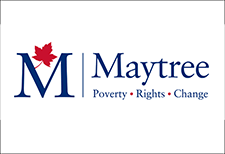
The policy brief, Provincial spending on housing and homelessness in Ontario, presents a stark reality: homelessness in Ontario is worsening, with chronic homelessness nearly doubling in just two years. The policy brief finds that: Homelessness is worsening: Over 81,000 Ontarians experienced...

FSRA’s role as regulator is to ensure pension plans meet the legal standards in the Pension Benefits Act. They can also help you if you can’t get the information you need from your plan administrator or want to file a complaint about your pension plan. Use this website to learn more...

York Region Plan to Support Seniors hosted an information series with John in late 2024. In these recorded sessions, John looks at what people need to know about retiring on a low-income, how to make the most of government benefits and other considerations. Session 1: What “low-income” means...
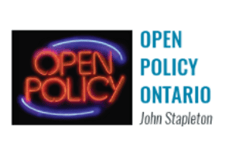
The Canada Disability Benefit website is managed by Plan Institute, a national non-profit organization based in Burnaby, BC. The purpose is to provide individuals, families, and professionals across Canada with up-to-date information and resources on the Canada Disability Benefit (CDB). Their...
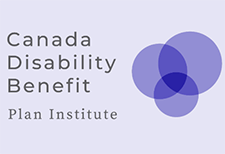
Almost all participants (Canadians and community-based organisations (CBOs)) voiced support for the idea of automatic enrolment because it would improve access to the benefit by streamlining the enrolment process for all eligible recipients. As eligible youth are from families experiencing low...
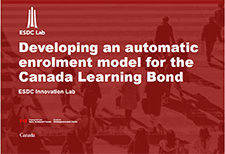
Through well-timed and thoughtful updates to their employee savings program, the number of Best Buy employees participating in the savings program increased from 4,500 to more than 7,000 and employees’ savings grew $1.5M. Interventions included enhancements to the program marketing content,...
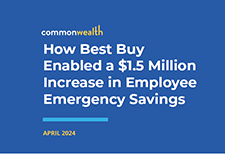
Canada's homeless encampments are a national human rights crisis. A growing number of people in Canada are having to live in tents or informal shelters to survive due to a lack of affordable housing, limited support services, and nowhere safe to go. Recognizing the severity of this crisis, the...
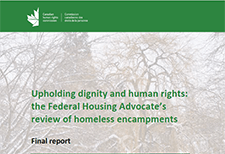
The Canada Disability Benefit is an opportunity to guarantee that people with disabilities can live a life with dignity and have an adequate standard of living. For the new Canada Disability Benefit (CDB) to meet its goal of financially supporting and reducing poverty of people with disabilities,...

This study examined the financial lives of retired Canadians and those approaching retirement. While most retired Canadians said they are in a strong financial position, a concerning 15% of retirees rated their financial situation as poor. Almost one third of retirees reported their monthly...

This publication is an outreach product to help promote the program "How to open a Registered Disability Savings Plan (RDSP) for yourself or a loved one with a disability". This infographic was created in response to feedback from stakeholders and was designed in collaboration with experts in...

The Ontario Securities Commission (OSC) has launched Investing Academy by GetSmarterAboutMoney.ca as part of Financial Literacy Month. Learn the basics about investing, managing your money, and planning for the future. The courses are available in English or French, and include learning activities,...

Enrolling in post-secondary education can be expensive. The Registered Education Savings Plan (RESP) is a dedicated savings plan designed to help you save for a child’s education after high school. Learn more about how RESPs work, the types of RESPs, and the fees involved by heading over to the...

In 2014, the government of BC declared October RDSP Awareness Month to help raise awareness about the Registered Disability Savings Plan (RDSP). The RDSP is the world’s first savings plan specifically designed for people with disabilities. Even with little to no personal contributions, there are...
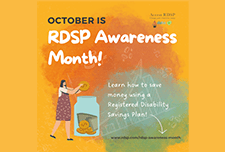
It's never too early or too late to learn about your retirement options and plan for your future. Using the Government of Canada's newly launched Retirement Hub, find out about public pensions, when to collect them and tips to consider for your retirement income. Get started using their...
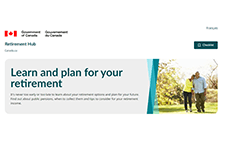
This Financial Resilience Institute report, authored by Eloise Duncan and commissioned by FP Canada and the Institut québécois de planification financière (IQPF) is being published for everyone with a stake in the financial resilience and well-being of Canadians. This study, leveraging the...

A recent Prosper Canada report shows that Canadians with low incomes are increasingly financially vulnerable but lack access to the financial help they need to rebuild their financial health. People with low incomes are unlikely to find help when they need it to plan financially, develop and adhere...

A prolonged period of rising inflation and interest rates has led to another significant downturn in the financial wellbeing of adult Canadians, risking their retirement readiness and security, according to the 2023 Canadian Retirement Survey from Healthcare of Ontario Pension Plan (HOOPP) and...

When Canadians have a financial problem, want to make a financial plan, or need help with their taxes, most simply reach out to their financial institution, adviser, accountant, or commercial tax preparer for the help they need. But who do low-income individuals turn to? A new report by Prosper...

Families Canada’s report Financial Empowerment for Women Living on Low Incomes: An Action Plan shares 20 calls to action for adapting financial literacy programming to better support women living on low incomes. To help fulfill some of the calls to action outlined in the report, they’ve just...

There are many effective, award-winning financial literacy programs in Canada. However, many of these programs do not meet the needs of women living on low incomes. Families Canada’s national research study identified 14 social, economic, and institutional barriers that prevent women living on...
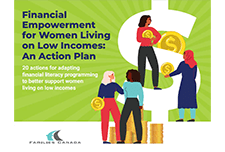
A new study by national charity Prosper Canada, undertaken with funding support from Co-operators, finds that Canadians with low incomes are increasingly financially vulnerable but lack access to the financial help they need to rebuild their financial health. The report, shows that affordable,...

Take stock of your RRSP, annuities, benefits, and whether you want to rely on your home as a source of retirement...

A Registered Retirement Savings Plan (RRSP) can help you save for retirement while also saving at tax time — or even getting a rebate. The articles from the Ontario Securities Commission (OSC) can help you understand more about opening, contributing to, and withdrawing from an...
